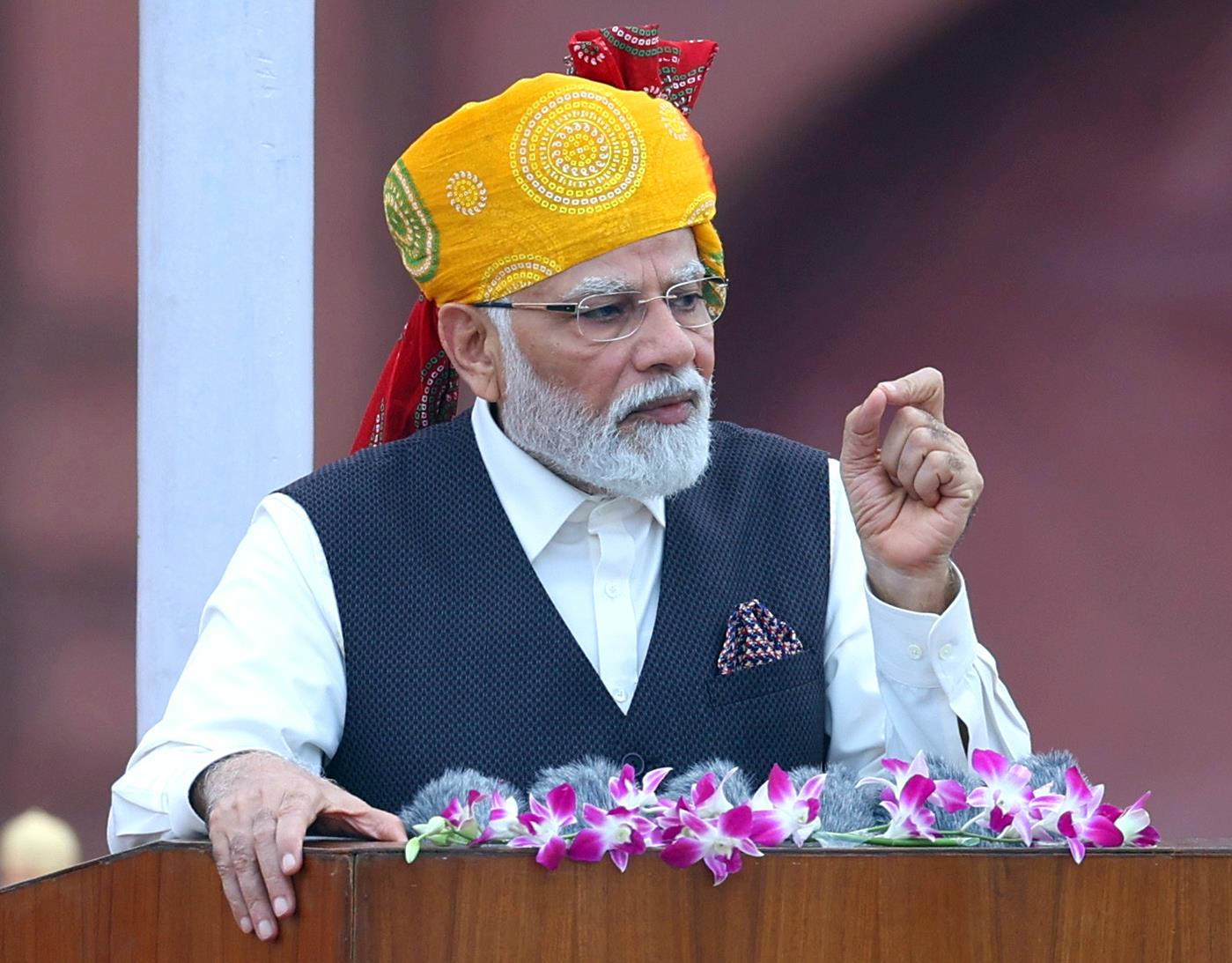

Prime Minister Narendra Modi concluded his two-nation visit to Russia and Austria, where he engaged in high-level talks and strategic discussions to strengthen bilateral relations and discuss key international issues. Upon his return, PM Modi took to social media platform X to express his gratitude to Austria's Chancellor and government for their gracious welcome and hospitality. Austrian Chancellor Karl Nehammer also thanked the teams involved in organizing the successful state visit and extended his appreciation for their professional planning and execution.
Prime Minister Modi Concludes Historic Visits to Russia and Austria
Prime Minister Narendra Modi recently concluded a successful two-nation visit to Russia and Austria, further strengthening bilateral ties and discussing key global issues.
Visit to Russia
In Moscow, PM Modi met with Russian President Vladimir Putin for extensive talks on various areas of cooperation, including defense, energy, trade, and healthcare. They also discussed the Ukraine conflict and agreed to work together to resolve it peacefully.
Prime Minister Modi's visit to Russia marked a significant step in deepening the strategic partnership between the two countries. Both leaders reaffirmed their commitment to bolstering economic ties and enhancing cooperation in areas of mutual interest.
Visit to Austria
PM Modi's next stop was Austria, where he held fruitful discussions with Chancellor Karl Nehammer. They explored ways to enhance bilateral relations in domains such as innovation, clean energy, and cultural exchange.
Austria's Chancellor expressed gratitude for India's support in combating terrorism and highlighted the importance of working together on global challenges. Both leaders emphasized the need for a multipolar world order and discussed the role of G20 in promoting global cooperation.
Social Media Interaction
Upon his return from the successful visits, PM Modi expressed his appreciation for the warm hospitality extended to him in Austria. He wrote on social media, "I thank Chancellor Karl Nehammer and the Austrian government for their gracious welcome and exceptional hospitality."
Chancellor Nehammer reciprocated the gesture by thanking the teams involved in organizing the state visit. He praised their professionalism and meticulous planning, which contributed to the success of the event.
Top 5 FAQs and Answers
1. What were the key outcomes of PM Modi's visit to Russia?
2. What areas of cooperation were prioritized during PM Modi's visit to Austria?
3. How did PM Modi express his gratitude for Austria's hospitality?
4. What did Chancellor Nehammer highlight in his message to PM Modi?
5. What is the significance of PM Modi's visits to Russia and Austria?

Cyclone Montha has intensified into a 'severe' cyclonic storm and is expected to make landfall in Andhra Pradesh this evening. The storm, which may cross the coast near the Kakinada area, is likely to bring heavy rainfall and strong winds to several districts in Andhra Pradesh. Meanwhile, the Odisha government has evacuated people from vulnerable areas and issued warnings for heavy rainfall in several districts. Commuters in the Waltair region have also been affected as train services have been cancelled, diverted, or terminated.

The India Meteorological Department has warned of an impending severe cyclonic storm, named 'Montha', that is expected to make landfall near Kakinada on the Andhra Pradesh coast. The storm has already caused heavy rain and strong winds along India's east coast and will continue to do so until Tuesday. States like Tamil Nadu, Odisha, Andhra Pradesh, and more have been placed on high alert and the government has declared holidays for schools in several districts as a precautionary measure. The Union Minister and BJP Chief has also directed party units to assist in rescue and relief operations.

While conducting routine operations on Sunday, two separate crashes involving US Navy aircraft occurred over the South China Sea, coinciding with President Trump's visit to Asia. The first involved a MH-60R Sea Hawk helicopter from the USS Nimitz, and the second involved a Boeing F/A-18F Super Hornet fighter jet. Luckily, all personnel involved were rescued without any injuries reported.

In a strong statement, President Asif Ali Zardari reiterates Pakistan's unwavering stance on the Kashmir dispute, calling India's claims on the territory illegal and in violation of international law and UN resolutions. He criticizes the recent remarks by Afghan leadership, highlighting the documented fact of terrorist attacks targeting Pakistani civilians and urging Kabul to take action against these militant elements. Zardari stresses that the fight against terrorism is a collective responsibility and Pakistan will not compromise its sovereignty or national security.

A tragic bus accident in Andhra Pradesh, India, which claimed the lives of 19 passengers, has been linked to a drunken biker, B Shiva Shankar. According to forensic reports and police investigations, the biker's reckless and intoxicated driving caused the initial crash that led to the bus fire. The bus was also carrying a consignment of smartphones and electric batteries, intensifying the fire and explosion. The second bus driver, who was reportedly sober, is cooperating with the investigation as police continue to file cases based on evidence and eyewitness accounts.

Indian Prime Minister Narendra Modi declared that the year 2026 will be marked as the "ASEAN-India Year of Maritime Cooperation" during the 22nd ASEAN-India Summit. This announcement highlights India's growing alignment with the ASEAN bloc, with Modi emphasizing the importance of the partnership in terms of strategic and economic cooperation. The Summit's theme of "Inclusivity and Sustainability" also reflects the shared priorities of both India and ASEAN, with joint efforts in areas such as digital inclusion, food security, and resilient supply chains. In addition to strategic cooperation, Modi also highlighted the expansion of collaboration in other areas such as education, tourism, and cybersecurity, while acknowledging the new member Timor-Leste and extending condolences to Thailand. Looking ahead, Modi expressed confidence in the long-term vision of ASEAN and India's development goals, stating that the 21st century belongs to both India and ASEAN.

During his virtual address to the 22nd ASEAN-India Summit, Prime Minister Narendra Modi highlighted the shared cultural and historical ties between the two regions and stressed the importance of ASEAN in India's Act East Policy. He reaffirmed India's commitment to ASEAN centrality and hailed the ASEAN-India Comprehensive Strategic Partnership as a foundation for regional growth and global stability. With Malaysia as the current ASEAN chair and the Philippines set to take over in 2026, discussions at the upcoming East Asia Summit will focus on Indo-Pacific security and regional stability.

During their stay in Indore for the Women's Cricket World Cup, two Australian players were molested by Aqueel Khan, a known criminal with a history of offenses. The man was caught after an eyewitness noted down the number plate of his motorcycle, allowing the police to track him down through CCTV footage. The Australian team, who were staying at Radisson Blu Hotel in Indore, reacted strongly to the incident and filed a complaint with the police. The Madhya Pradesh Cricket Association has condemned the incident and offered support to the affected players.

The leaders of five European countries, including PM Keir Starmer and Ukrainian President Volodymyr Zelensky, gathered in London to address the ongoing war in Ukraine. Starmer declared that Russian President Vladimir Putin is not serious about pursuing peace, while Zelensky thanked the US for imposing new sanctions on Russia. Outside of the summit, Ukrainians shared their experiences and fears of living in a warzone.

India and the US are on the verge of finalizing a trade deal, with both sides making significant progress and ironing out most issues. Union Minister of Commerce and Industry, Piyush Goyal, clarified that India will not succumb to pressure and will only enter into a deal that is fair and beneficial for both countries. Furthermore, Goyal emphasized that India's approach is driven by a long-term vision, rather than momentary pressure or deadlines.